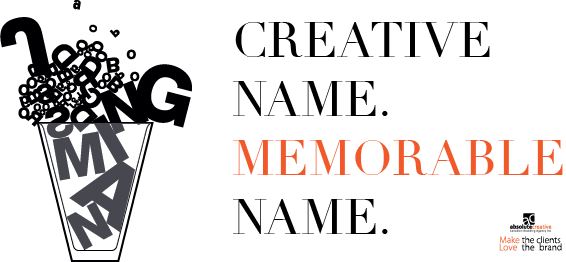
What steps to develop a highly memorable brand name?
The Importance of Brand Names
Increasing brand awareness is considered to be one of the publicity functions; and, there are lots of methods used by companies (frequent repetition of brand name in advertisements, repetitive advertisements in various media, and taking advantage of celebrities for brand promotion) so that this goal would be satisfied. Moreover, brand awareness would be evaluated through brand memorability by customers, most of the time.

One of the Most Essential Characteristics of a Strong Brand Name is Memorability.
The executive and strategic aspects of publicity are important for enhancing brand name memorability. However, research in psychology has shown that the features of a brand name can also impact its memorability.
Choosing the right brand name may seem like a straightforward or daunting task, as many factors must be considered. In this context, the primary purpose of a brand name is its memorability. Therefore, it is crucial to discuss how to select a brand name that will be easily remembered.
Brand Name: The Advantages of Being Brief
Numerous studies in the field of learning sciences have demonstrated that words with fewer syllables and letters are more memorable. The shorter the word, the easier it is to remember. Additionally, shorter words are easier to read, which further enhances their memorability. When a word is read easily and quickly, it has a higher chance of being retained in memory. For further reading on this topic, please refer to:
https://labs.la.utexas.edu/gilden/files/2016/03/1-s2.0-S0022537175800454-main.pdf
It is commonly observed that brands with shorter names are easier to remember for consumers. As a result, many fast-moving consumer goods (FMCG) companies opt for short and simple brand names. In the FMCG market, Procter & Gamble (P&G) is known for its brands with short names consisting of one or two syllables, such as Tide, Downy, Bounty, and Luvs.
This naming strategy aligns with the research findings mentioned earlier, which suggest that shorter words are more memorable and easier to read. By using short and simple brand names, FMCG companies like P&G aim to create strong brand recognition and top-of-mind awareness among consumers.
to: https://us.pg.com/brands
Brand Name: The Importance of Being Descriptive
Research has shown that “meaningfulness” is a crucial factor in retaining words in memory. However, being meaningful is not a singular characteristic but rather a combination of various attributes associated with a word. These attributes could include semantic clarity, emotional salience, and personal relevance, among others.
When a word has a clear and unambiguous meaning, it is more likely to be remembered. Similarly, if a word evokes strong emotions or has personal significance, it is more likely to be retained in memory. Therefore, in addition to being short and simple, a brand name should also have a clear and meaningful message that resonates with consumers. This way, it has a better chance of being remembered and recognized in the marketplace.
Utilizing Visual Memory for Better Recall
Research has demonstrated that visual memory is more effective than verbal memory. Therefore, brand names that are presented visually, with a physical or visual representation of a specific category, are more likely to be remembered. Examples of such brands include Arrow Pest Control, which uses an arrow and an insect in its logo, creating a clear and memorable visual image that represents the brand’s name. Similarly, one of the world’s most recognizable brands, “APPLE,” is represented through a physical concept, the fruit apple, creating a clear and memorable visual image that is associated with the brand.
This visual approach to branding is effective because it allows consumers to quickly and easily associate the brand with a specific category or concept, making it easier to remember and recognize. Therefore, it is important for brands to consider the visual elements of their brand identity, such as logos and imagery, in addition to the verbal components like brand names, to create a memorable and impactful brand.
Creating Brand Differentiation by Avoiding Generic Terms
Research has also demonstrated that the frequency of repetition and application of a brand name can impact its memorability. According to Meyers-Levy (1989), brand names with highly repetitive words that are commonly used in everyday life may be remembered for a shorter period of time. For example, the word “united” in United Airlines is a commonly used word, making it more difficult for consumers to differentiate and remember the brand.
In contrast, brand names that are distinctive and less repetitive are more likely to be remembered. These names stand out in consumers’ minds and are more easily associated with a specific brand. Therefore, it is important for brands to choose names that are both unique and memorable, to ensure that they stand out from competitors and are easily remembered by consumers.
“Striking the Balance: How Brand Names Can be Both Functional and Memorable”
Research suggests that the closer a brand name is to the function of a product or service, the more likely it is to be remembered. This is because the name directly relates to the product or service being offered, making it easier for consumers to make an association and remember the brand.
However, it is also important to consider the uniqueness and distinctiveness of the brand name. While an all-purpose word may be more closely related to the function of a product or service, it may not stand out in consumers’ minds and may be less memorable. Therefore, brands must strike a balance between using names that are closely related to their function and those that are unique and memorable.
Overall, the choice of a brand name should be a thoughtful and strategic decision, taking into account factors such as length, meaning, visual elements, repetition, distinctiveness, and relationship to the product or service being offered.
Conclusion
Ivory is an excellent example of a brand name for shampoo, as it is short and has a physical association with the product category, making it more memorable.
In order to create a memorable brand name, it is important to consider factors such as length, meaning, visual elements, repetition, and distinctiveness.
A memorable brand name is crucial for success in the marketplace, and crafting one requires a distinct and concrete approach. If you are in need of branding services, consider contacting Absolute Creative to help you select the perfect brand name for your business.
Absolute Creative, a brand agency in Vancouver, Canada, offers scientific methods for selecting the best name for a brand, using 11 different indices to ensure the name is memorable and fixed in consumers’ memories, contact us today.
What steps to develop a highly memorable brand name?
Developing a highly memorable brand name requires careful planning and strategic thinking. Companies must first understand the importance of increasing brand awareness as a critical publicity function. To achieve this, several methods can be employed. Firstly, frequent repetition of the brand name in advertisements is crucial. By consistently exposing customers to the brand, it becomes ingrained in their minds, leading to increased recall and recognition. Repetitive advertising across various media channels also plays a vital role in enhancing brand awareness as it allows companies to reach a broader audience base and reinforce their message effectively.
Capitalizing on celebrities for brand promotion also helps capture attention and generate buzz around the product or service offered. Stars influence consumer behavior, and associating them with a particular brand enhances its visibility and credibility in the market. Lastly, evaluating brand awareness through customer perception is essential for gauging effectiveness. Customers’ ability to remember the brand easily reflects how successful these efforts have been thus far in creating resonance with consumers at large.

